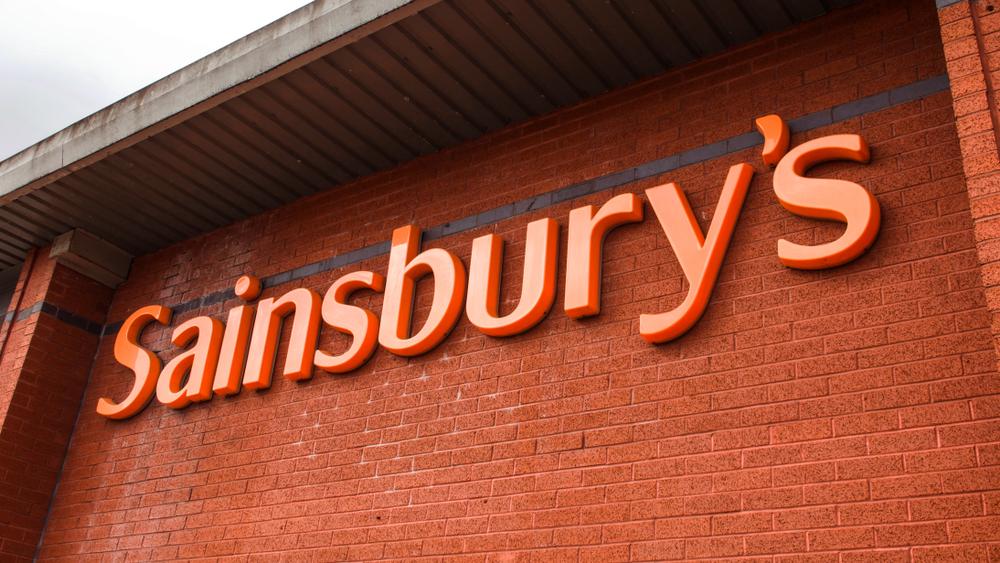Sainsbury’s (LON:SBRY) have seen their shares dip as the firm reported a fall in quarterly sales.
The British supermarket reported a sales fall in its third quarter, which is notable as this did include the festive Christmas and Black Friday period.
The firm did note that sales in groceries alone increased compared to a year ago.
In the 15 weeks to January 4, total retail sales, excluding fuel, were down 0.7% from last year. Including fuel, sales were down 0.9%, which has seemed to edge shareholders.
Compared to 2018, on a like for like basis sales excluding fuel also were 0.7% lower year-on-year, but the like for like decline dropped further to 1.1% when including fuel sales.
On a more positive note, grocery sales rose 0.4% from a year ago with online grocery sales up 7.3% an area which the firm has looked to expand over the last few years.
The shift to online shopping was more blatant as one fifth of total sales across the quarter started on line, as online sales grew 5% year on year.
Clothing sales rose by 4.4%, which Sainsbury’s said was driven by both the colder weather during the quarter and its Christmas gift range.
Sainsbury’s raised the success of its subsidiary brand Argos, who reported its biggest ever Black Friday sales total for digital and tech products.
Chief Executive Mike Coupe said: “We gave our customers a great combination of quality food at good prices this Christmas and we delivered a standout performance operationally.
“Argos had its biggest digital Black Friday to date and record sales through mobile and via Argos Click and Collect, 32 million customers shopped with us across Sainsbury’s and Argos in the key Christmas week.”
Sainsbury’s added: “We invested in 127 supermarkets and 93 convenience stores in the quarter and are on track to deliver improvements to 450 supermarkets and 200 convenience stores by mid-March.
“Retail markets remain highly competitive and promotional and the consumer outlook continues to be uncertain. However, we are well placed to navigate the external environment and are executing well against our strategy.”
The firm also noted that it opened new sorters in Essex and Milton Keynes, whilst adding six new convenience stores to its portfolio.
How did rivals perform at Christmas?
Yesterday, Morrisons joined Sainsbury in a list of British supermarkets who’s saw their sales draw short.
The firm said that challenging trading conditions coupled with consumer uncertainty were the largest contributors to the slump in sales.
Morrison’s said that said like-for-like sales, excluding fuel, were down 1.7% year-on-year.
Notably, fuel sales declined 2.8% year on year across the 22 weeks period, and total sales dipped 2.9% but the figure totaled 1.8% without fuel sale considerations.
The company said: “We managed costs well throughout the period, offsetting some of the impact on like-for-like sales of the challenging trading conditions and continued uncertainty amongst customers.”
Morrisons added “Throughout the period, trading conditions remained challenging and the customer uncertainty of the last year was sustained”.
Kantar Report
Yesterday, a report published by Kantar on the British supermarket industry highlighted the dominance of Aldi and Lidl.
Aldi saw their market share rise to 7.8% during the period, as Lidl also grew to 5.9% from their previous 5.3% showing significant gain for the German firms.
A notable performance came from Ocado (LON:OCDO) who showed the fastest sales rise along with the German firms.
Ocado saw a rise of 13% in year on year sales from £345 million to £389 million, as it increased its market share to 1.3% compared to the 1.2% figure last year.
As these firms took the market by storm across the Christmas period, the traditional big four lost ground.
Asda also saw a similar slip, as the firm totaled its market share at 14.8% representing a 0.4% slip from the 15.2% figure a year ago.
Asda, who are owned by Walmart (NYSE:WMT) reported a sales decline of 2.2% year on year to £4.35 billion.
Tesco PLC (LON:TSCO) who are the biggest of the big four, also saw a slip in their market share.
The FTSE 100 listed firm saw its market share slip from 28.4% to 27.4% as sales fell 1.5% to £8.03 billion.
Certainly, amid a period of tough trading and competition from overseas brands, shareholders of Sainsbury will be expecting an emphasized effort to turn fortunes around.
Shares of Sainsbury dipped 1% to 228p. 8/1/20 11:03BST.

